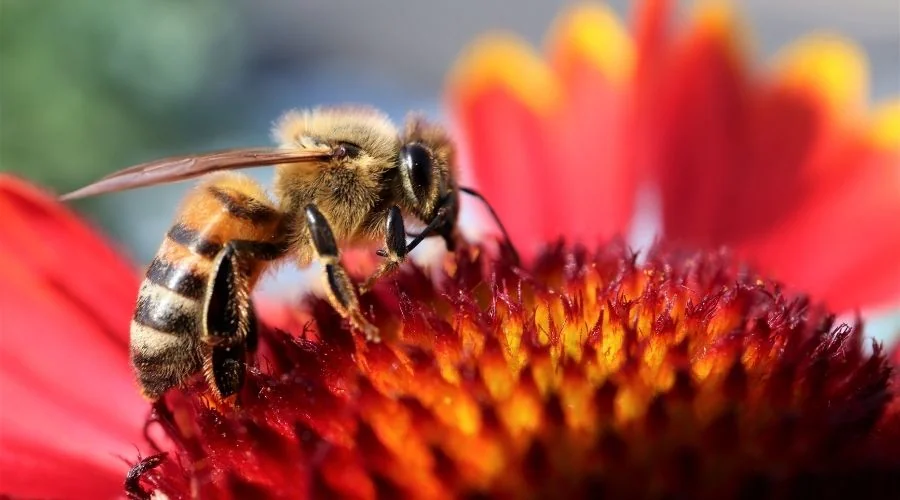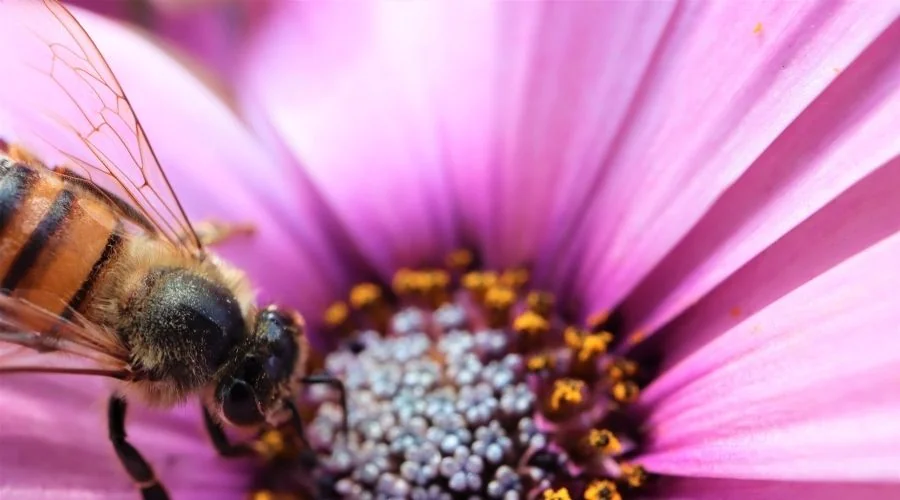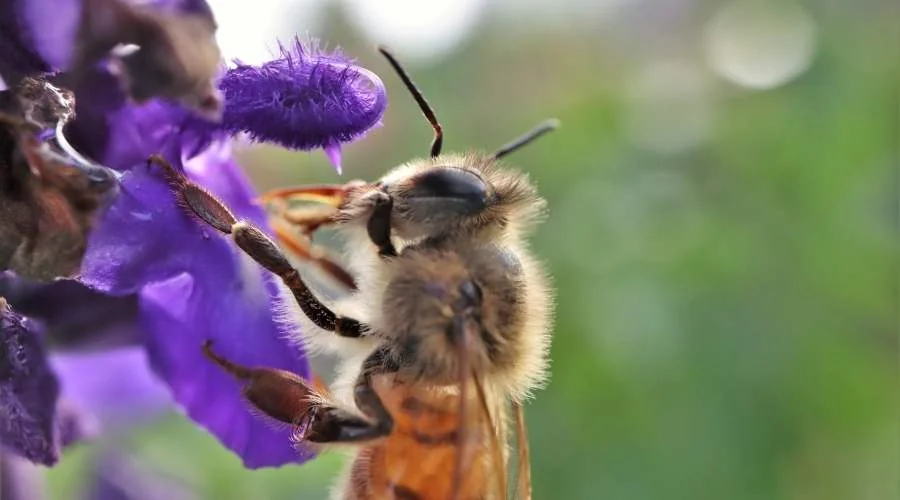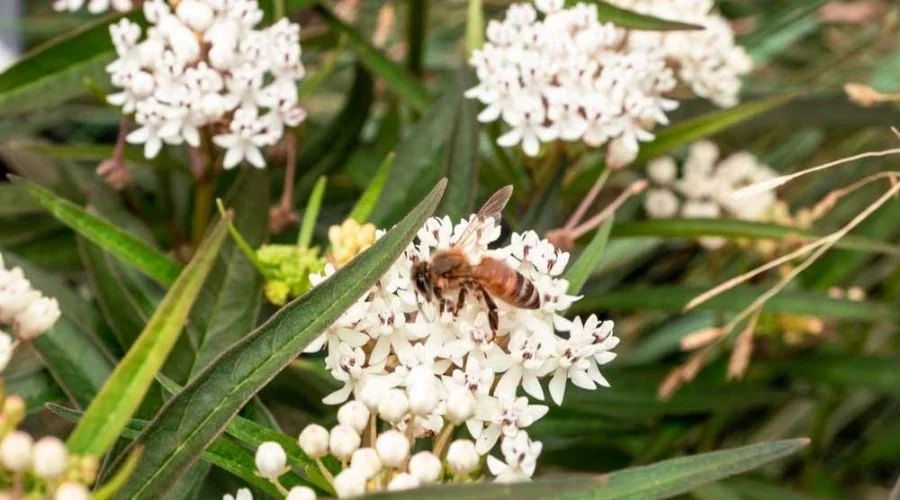By Amanda Rose Newton

As spring arrives in Central Florida, our gardens come alive with buzzing pollinators. While honeybees often steal the spotlight, solitary bees are the unsung heroes of the garden. These hardworking native pollinators—such as mason bees, leafcutter bees, and sweat bees—play a crucial role in keeping our landscapes thriving. Unlike honeybees, solitary bees don’t live in hives or produce honey but are even more efficient at pollination. If you want to attract and support these beneficial insects, building a bee hotel and selecting the right host plants are great ways to start.
Types of Solitary Bees in Central Florida
Central Florida is home to several species of solitary bees that help pollinate fruits, vegetables, and native plants.
- Mason Bees (Osmia spp.) – These metallic blue or green bees use mud to seal their nesting tunnels. They emerge in early spring and are excellent pollinators for fruit trees like citrus, blueberries, and peaches.
- Leafcutter Bees (Megachile spp.) – Recognizable by the neat semicircle cuts they make in leaves, these bees use plant material to line their nests. They are active throughout the warmer months and favor plants like peas, beans, and sunflowers.
- Sweat Bees (Halictidae family) – Small, often metallic green or black, sweat bees are ground nesters. They are known for their attraction to human sweat but are harmless and contribute to pollinating wildflowers and crops.
- Resin Bees (Heriades spp.) – These tiny bees nest in wood cavities and use plant resin to seal their nests. They are particularly drawn to small flowers like asters and daisies.
Supporting these native species is simple with the right habitat and plants.

Building a Bee Hotel (and What Not to Use!)
Solitary bees often nest in hollow stems, wood cavities, or underground burrows. Since urban and suburban gardens may lack these natural spaces, bee hotels provide a great alternative. However, not all bee hotels are created equal!
Avoid pinecones, bamboo, and other “decorative” materials. Many DIY tutorials suggest using pinecones, stacked wood, or loose bamboo tubes, but solitary bees rarely use these materials. Pinecones don’t provide the right nesting structure, and bamboo can often develop mold or house unwanted pests.
What to use instead:
- Drilled Wood Blocks – Mason and resin bees prefer small, pre-drilled tunnels in untreated wood. Holes should be 3-8mm in diameter and at least 6 inches deep.
- Paper or Cardboard Tubes – Replaceable tubes are ideal for preventing pests and disease buildup.
- Hollow Stems (Native Plants Preferred!) – Leave stems from plants like elderberry or goldenrod standing over winter, as many bees will naturally nest inside them.
Placement Tips:
Providing food sources is just as important as nesting sites. Native solitary bees rely on a variety of plants for nectar and pollen. Choose plants with staggered bloom times to support bees throughout the year.

Best Native Plants for Solitary Bees in Central Florida:
- Spring: Blueberries, Carolina Jessamine, and Coreopsis
- Summer: Sunflowers, Blanket flower, Passionflower, and Milkweed
- Fall: Goldenrod, Aster, and Beautyberry
- Winter: Wild Mustard, Coral Honeysuckle, and Rosemary
Planting in clusters rather than single plants helps bees conserve energy and increases their foraging success. Avoid pesticides, and leave some areas of bare ground for ground-nesting species like sweat bees.

Small Changes, Big Impact
Creating a welcoming habitat for solitary bees with bee hotels and pollinator-friendly plants contributes to a healthier ecosystem and a more productive garden. Remember, a bee-friendly yard doesn’t just support bees—it also benefits butterflies, birds, and other beneficial wildlife.
This spring, become a Garden Habitat Hero and give these hardworking pollinators the home they deserve!
Click the button below to check out our last blog post in this series!


